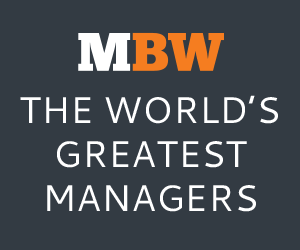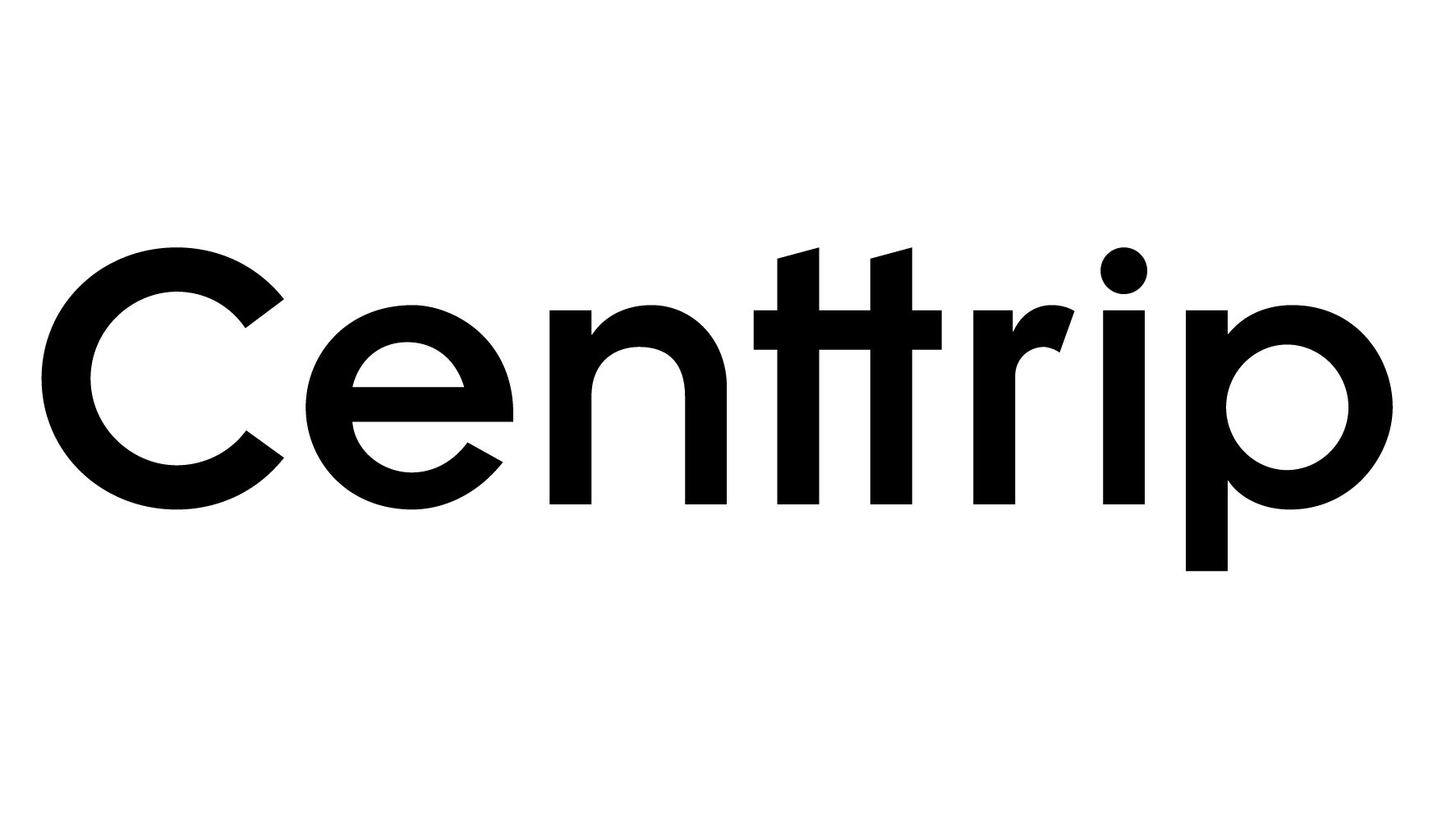MBW’s World’s Greatest Managers series profiles the best artist managers in the global business. Here, we speak to Glass Animals manager Amy Morgan. World’s Greatest Managers is supported by Centtrip, a specialist in intelligent treasury, payments and foreign exchange – created with the music industry and its needs in mind.

In November, Glass Animals manager Amy Morgan, who also heads up September’s publishing arm, was crowned Manager of the Year at the Artist & Manager Awards.
She received the honour for steering the band’s hugely successful third album campaign during the global COVID-19 pandemic, when their initial touring-heavy promo plan had to be completely scrapped.
Instead, Morgan and the band, with inspiration from frontman Dave Bayley’s 36-page creative bible that he started making the record with, devised a fanfocused innovative plan that encompassed 3D artwork, live-streamed events, syncs in FIFA 21 and Minecraft fan fiction alongside Zooms, Discord chats and Reddit hangs.
Their efforts, as well as that of their new label home at Republic and Polydor, were richly rewarded: Dreamland is Glass Animals’ most successful album to date, charting at No. 2 in the UK, No. 7 in the US and No. 6 in Australia.
Its pivotal single, Heat Waves, peaked at No. 5 in the UK and charted at No. 1 in Australia, Germany and Top 10 across Europe.
In the US, where it hit Top 40 radio, the track set a new chart record for the longest climb into the Top 10, reaching No. 10 after 42 weeks in the Top 100. The band also recently received a 2022 Grammy nomination in the Best New Artist category.
The triumphant turnaround of a potential disaster would surely result in Morgan giving herself a well-deserved pat on the back alongside her management peers. Not so much, she tells us, for, despite her 10- year experience in management, she’s still struggling with a dose of imposter syndrome.
“It’s quite mad to be winning the award; when I found out, I couldn’t believe it,” she tells MBUK. “For a long time, I managed Glass Animals by myself while I was still running Beggars’ publishing company so never felt like a legitimate manager because I’ve always had these other strands to my career and I was working with just one artist and felt like I was learning as I went along.
“I was always so aware of how much I didn’t know. I suppose this makes me realise I’ve come quite a long way in that period of time.”
Morgan started managing Glass Animals while working at Beggars Music. She’d been sent the band’s music by Chairman Andy Heath, who had signed the group’s drummer’s dad. (Charlie Seaward, father of Glass Animal Joe, was in the acclaimed British ensemble Man Jumping.)
“When you start out, you think talent will win, but it’s not that straightforward.”
Amy Morgan
Morgan played Glass Animals’ music and loved it. She met the band, got on well, and started developing them with the aim of signing a publishing deal.
The band then released an EP through Kaya Kaya. Full-time managers started becoming interested and Morgan found herself feeling territorial. “I was helping them look for somebody but then was like, actually, I don’t really want to hand this over, I’m really enjoying it; we’ve got a good plan and I saw where we were going.”
She threw her hat in the ring and, thankfully, it was the moment the band had been waiting for.
Prior to working with Glass Animals and at Beggars, Morgan was an A&R scout at Zomba Music Publishing and then V2 Records before joining Cooperative Music to do international marketing and promotion.
Today, aside from her management duties, she’s focused on growing September’s publishing division, which works with Ivor-nominated Irish producer Dave Balfe, whose artist project goes under the moniker For Those I Love, and Toronto duo MONEYPHONE.
Glass Animals started their US tour that got scrapped last year in August. It landed in the UK in November, with further US, Canada and Europe dates in December and from March 2022 onwards.
Here, we chat to Morgan about lessons learned across her career to date, managing an album campaign through a global pandemic, artist development and much more besides…
Your early career encompassed lots of different roles — what were your biggest lessons learned during those days?
I realised that it wasn’t just about finding talented people and that making talent into something that’s a career is a lot of work and both you and the artist need to have a lot of determination to do that.
There are some people who have that drive and determination, there are some who don’t, and you need to be aware of that quite early on. When you start out, you just think talent will win, but it’s not that straightforward.
“The world moves so quickly and because music is at the forefront of culture. It moves quicker than almost anything.”
Also, I learned how much things change very quickly with technology. When I started in A&R, there was Myspace, and that was it, and now there’s TikTok and everything else.
The world moves so quickly and because music is at the forefront of culture. It moves quicker than almost anything.
In those early days, with streaming and piracy, all of those changing technologies impacted so directly on what we were doing and at the very grassroots end of how artists were making music and how music was coming into the world.
I guess I also learned about navigating the industry as a young woman. You have to find the people to work with who see you for who you are and realise there are always going to be people who are patronising. You have to pick your battles and pick your allies.
You work across publishing and management today. How does what you do in both inform the other?

My publishing background means songs are always at the front of my mind and that definitely informs the management side of things in terms of the respect that I give a songwriter, time that we carve out for that in somebody’s career and how it’s valued.
It also makes you see how much more there is to somebody’s career for a writer who is also an artist. When you have the management background, you are more able to work alongside an artist career and everything that involves.
Understanding what touring is like in reality, and the pressure it puts people under and the drain on creativity, for example, gives me an understanding of how you work with writers around the demands of that and be more supportive
What September and I want to be as a publisher is way more than just somebody who pitches songs and sessions.
In this day and age, I think your publisher should add value to your team and be a support network for an artist, regardless of whether you’re overstepping what a traditional publisher role is or not.
The management experience really allows you to do that, especially with younger or developing artists who’ve maybe got young management or no management.
Also, I’ve done an awful lot in America now so I understand how global you need to be in everything that you do and how you think and I bring that onto the publishing side. I’ve got no real interest in only working with people in one market.
With Dreamland, you had a whole plan mapped out which got completely ruined by the pandemic. Can you talk me through that time and the thinking behind the new strategy that you created for the band?
It felt catastrophic at the time, because we were in America, in the middle of setting the project up, and we had to come back.
The first single was already out so it was too late to pull everything back. Glass Animals were, at that point, known as being a global artist and a big live artist and the two things that instantly disappeared overnight were travel and touring.
I’d made changes on the label side, we’d moved from Caroline to Polydor and Republic and that came with expectations.
I felt like this was their biggest record and I wanted to have an infrastructure around them that could help us push to the next stage. We had all these album bundles in America with tickets and there was going to be 24 months of high level global touring, so it was just devastating.
But the thing that I felt determined about from a very early point, once the shock had settled, was that I really believed in the band and the record and it wasn’t going to be good enough for me or for them to just put it out and hope for the best.
I felt like this record deserved so much more than that.
We were very lucky that they are two albums in and the fanbase is an incredible bunch of people around the world who are an engaged, creative and supportive community.
That started the new plan because we really thought about who those people were, how to engage them and how to make them feel part of the world of this record when all of the normal channels had been taken away.
What were the factors behind the great chart success that they had globally?
Again, they have built a really strong fanbase who really turned up.
The launch of the record was a big part of it and then Heat Waves has just been a whole other thing where there’s so many different parts that have played into the story of it.
One of the main things is that early on, Dave was very keen to build a part of the website where he made the creative of the record available to people.
So we had an open source website, the stems of songs were on there as well as the artwork stems, and people could make their own stuff around it. That created this dialogue where there was this back and forth between the band and the fan communities.
There was also general encouragement from the band to take the music, play with it and build your own stuff from it. That resulted in a piece of fan fiction about two Minecraft YouTubers that went viral and engaged the Minecraft fan world.
“It’s been a slow burn but the one thing that is consistent is that every time the song has been given a platform, it’s connected beyond what anybody would have expected.”
At the same time, the song had been synced in FIFA and was incredibly reactive off the back of that. From there, it just grew and got into bigger playlists on Spotify and DSPs, where the song started reacting and over indexing. Then it went to radio and crossed Top 40 in America. Most recently, it became a big TikTok track.
It’s mad because the song has been out since June 2020 and it’s still charting. It’s still Top 10 in the UK, in America, the numbers are crazy, and it’s all across Europe.
It also spent six weeks at No.1 in Australia.
It’s been a slow burn but the one thing that is consistent is that every time the song has been given a platform, it’s connected beyond what anybody would have expected.
That song and the record as a whole has themes of loss and nostalgia and wishing for things that have been taken from you and I think that very much resonated during what everybody’s been through over the last 18 months.
What role did the band’s new label setup play in the success?
They’ve been incredible in that what they signed up for was a big touring act and that’s not what they got, at least not until now.
They’ve been incredibly creative and engaged and I have massive respect for everybody on the team who went above and beyond to work with quite an odd project during a challenging time for everybody involved, both personally and in terms of working in a completely different way they were used to.
They were so passionate about the band and the projects, and so determined, and that was really impressive. The band’s radio success in the US in particular has been amped up to another level; the label worked so hard on that.
What has this whole experience taught you as a manager?
I don’t think I’m ever going to get as stressed about small things like I used to! I think resilience and determination and also that you just have to figure it out and keep going.
This has been a very big lesson in that as well as tapping into your resources, creatively and personally.
“It’s tough for every manager who’s navigated artists through this who, in a lot of their minds, only really exist when they’re seeing that interaction with people and response to their work.”
It’s tough for every manager who’s navigated artists through this who, in a lot of their minds, only really exist when they’re seeing that interaction with people and response to their work.
It’s funny because we thought we’d already been through the worst when Joe had his accident [in 2018, drummer Joe Seaward was hospitalised with brain damage following a cycling accident] and of course in a lot of ways that was so much worse because it was scary and we were worried that he was not going to be the same again. But that made us stronger as a unit and more resilient and I guess this has done the same.
I hope it has, anyway, either that or we’re all going to end up in the loony bin!
What would you change about the music industry and why?
I feel like people need to give more time and resources to artists at the beginning of their careers, in order to develop themselves without the pressure that comes with the deals and everything else.
More than ever, if an artist doesn’t know who they are, what they want, what their projects look and feel like as well as what they sound like, and have that developed to a certain level, the industry eats them alive.
“I don’t think you can sustain a career only in the UK anymore, and a lot of the time the industry encourages you to think very much about your domestic market, because of the way labels are set up, which of course is important, but you also need to think about the world.”
There’s more work to be done or more space that needs to be given to people with a bit of resource because some arrive fully formed with this incredible self knowledge but a lot don’t.
A bit of guidance and resource can be really helpful to people finding those early stages of themselves and articulating that. The industry is so hungry for new that it gobbles things up sometimes.
The other thing is just thinking more globally, in every aspect of the industry, because we live in a small world now.
I don’t think you can sustain a career only in the UK anymore, and a lot of the time the industry encourages you to think very much about your domestic market, because of the way labels are set up, which of course is important, but you also need to think about the world.
I don’t just mean in the touring sense, but also culturally, how you think, how you release music and how you communicate that. Travel comes alongside that and you also have to figure out a way of trying to be environmentally and climate responsible. That’s the next challenge, which I haven’t in any way begun to master.
What advice would you give to someone starting out in management today?
Make sure you’ve got people to whom you can ask questions.
You have to always know what you don’t know. For me, asking people I really trusted a lot of questions meant I could grow with the band as they grew quite rapidly, especially at a time where if you make mistakes, there’s a lot of money at stake.
Often, pride stops people from asking for help but ultimately, if your artist is doing really well, quite quickly, you need to be able to plug the gaps in your knowledge otherwise you’re not doing yourself or, more importantly, them, any kind of service.
A specialist in intelligent treasury, payments and foreign exchange,  Centtrip works with over 500 global artists helping them and their crew maximise their income and reduce touring costs with its award-winning multi-currency card and market-leading exchange rates. Centtrip also offers record labels, promoters, collection societies and publishers a more cost-effective way to send payments across the globe.Music Business Worldwide
Centtrip works with over 500 global artists helping them and their crew maximise their income and reduce touring costs with its award-winning multi-currency card and market-leading exchange rates. Centtrip also offers record labels, promoters, collection societies and publishers a more cost-effective way to send payments across the globe.Music Business Worldwide





